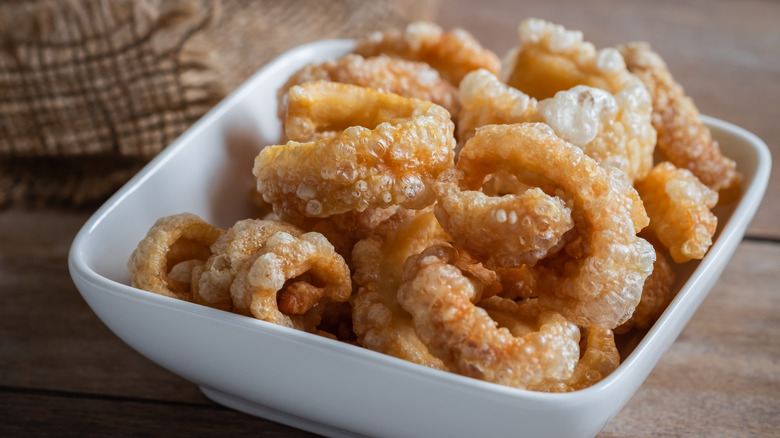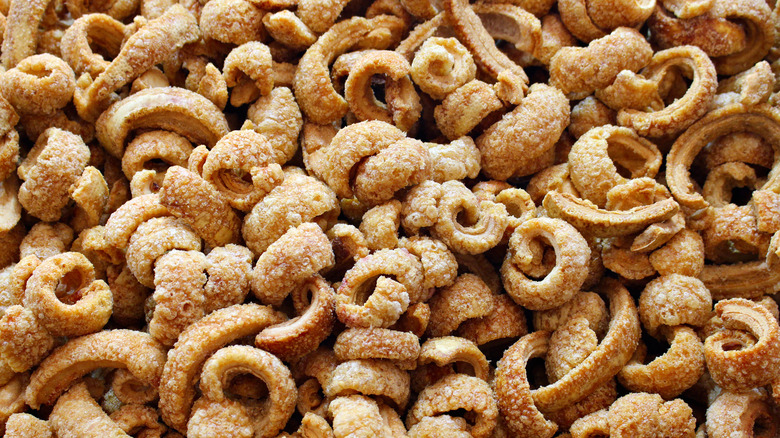Are Pork Rinds Good For You?
At first glance, pork rinds don't seem like they'd be a healthy snack. Deep-fried pigskin doesn't exactly scream "nutritious." But this snack has been labeled as a healthier alternative to things like potato chips and pretzels for many years now. According to Vice, pork rinds are made from boiling pigskin before drying it and deep-frying it until it puffs up. The reason they have developed a healthier reputation is that they are low in carbs and high in protein, as opposed to many other crunchy snacks that are the complete opposite.
According to WebMD, a one-ounce serving of pork rinds contains 160 calories, 18 grams of protein, five grams of fat, and zero grams of carbohydrates or sugar. That is more impressive than a one-ounce serving of Lay's potato chips, which contains about the same amount of calories but also has 9.5 grams of fat, 15 grams of carbohydrates, and only 1.8 grams of protein (via Nutritionix). When it comes to macros alone, pork rinds seem to be the winner.
Pork rinds are low in vitamins and minerals
Although they contain a decent amount of protein, pork rinds don't have much else to offer as a healthy snack. According to Healthline, these snacks are "very low in any beneficial vitamins or minerals." They are also quite high in sodium because they are processed. Many pork rind snacks are seasoned with salt before being packaged as well. A medium-sized bag of pork rinds contains about half of an adult's recommended daily sodium intake.
According to Healthline, pork rinds are considered an ultra-processed food and should be consumed sparingly. Eating too many ultra-processed foods can lead to weight gain, increased abdominal fat, diabetes, heart disease, and kidney stones. Healthline also notes that about half of the fat found in pork rinds is saturated fat, which can contribute to heart disease when too much is eaten.
While pork rinds are helpful for people on low-carb diets, they shouldn't be considered a healthy snack. It is fine to enjoy them sparingly as a treat but they shouldn't be a large part of your diet.


